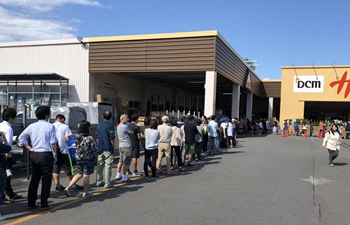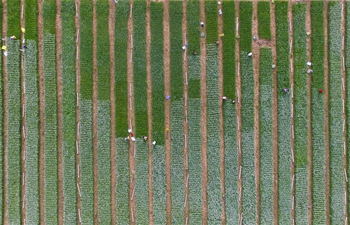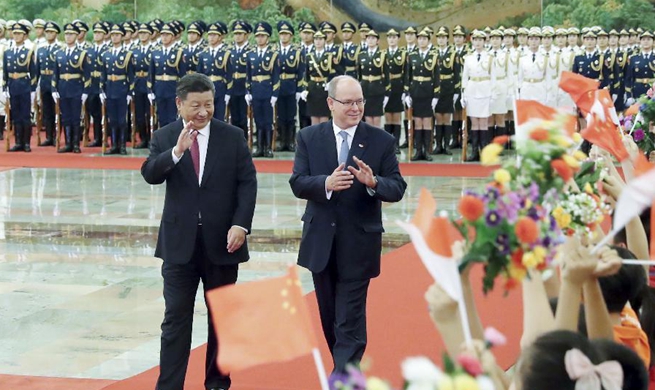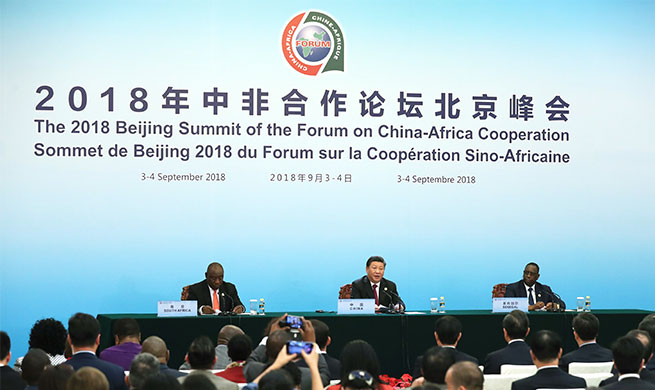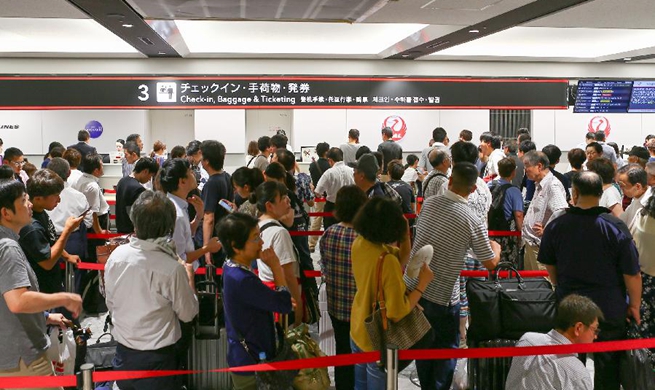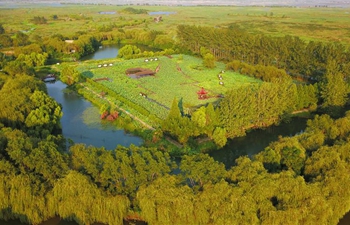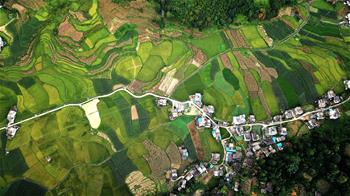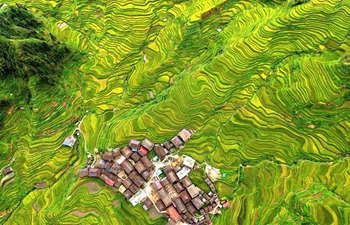ANKARA, Sept. 7 (Xinhua) -- The presidents of Turkey, Russia and Iran will hold a tripartite summit on Friday in Tehran as part of Astana process which seeks solution to the civil war in Syria.
The meeting comes amid accelerated efforts of international community, and it will be the third summit of the leaders after the previous ones in Russian resort city of Sochi and Turkish capital Ankara.
Turkey recently has stepped up for diplomatic and military demarche as the Syrian government forces are planning a massive operation to eliminate all extremist groups in Idlib after the successful recapture of rebel-held parts of western and southern Syria.
As a result, President Recep Tayyip Erdogan met Iranian Foreign Minister Mohammad Javad Zarif in Ankara on Aug. 29. Turkish Foreign Minister Mevlut Cavusoglu met his Russian counterpart two times in August, while Turkish intelligence and military chiefs paid a visit to Moscow as well.
Ankara warns against a full-scale military operation that will risk the lives of over 3 million civilians.
"A military solution here would be a catastrophe, not just for the Idlib region, but a disaster in terms of Syria's future," Cavusoglu told reporters after meeting Russian Foreign Minister Sergei Lavrov.
Turkey, Russia and Iran are guarantor countries of a cease-fire deal in Syria and their efforts are parallel to the Geneva talks sponsored by the United Nations, under which the three guarantors agreed to establish de-escalation zones in the northern province of Idlib and parts of neighboring Latakia, Hama and Aleppo.
The cooperation among these three regional powers comes despite they support opposing sides in the Syrian conflict. Moscow and Tehran back Syrian President Bashar al-Assad while Turkey is supporting Assad's foes since the start of the Syrian war in 2011.
Turkey is emphasizing on the preservation of rules of engagement drawn up as per the Astana agreement, which is preventing any military offensive in Idlib.
Under the Astana agreement, Turkey has established 12 observation points from Idlib's north to south in order to monitor and sustain the cease-fire deal, deliver humanitarian aid and to keep control of a mass influx.
The trilateral summit in Tehran will prioritize the situation in Idlib, Serkan Demirtas, columnist of Hurriyet Daily News said.
Erdogan will try to convince other leaders to avoid a military operation in Idlib, Demirtas said, stressing that if Russia paves the way for a military offensive in Idlib despite Turkey's concerns, the attack would de facto end the Astana process, as often warned by Turkish officials.
Turkey is against the military operation in the rebel-hold province, located near the Turkish border, in order to reduce potential civilian losses, which can also trigger a new refugee influx from Idlib, where over 3 million people live, according to Demirtas.
The summit will be a venue to offer a new effort between intelligence organizations to separate extremists from civilians so that pinpoint operations can jointly be carried out, he said.
Ankara urges Moscow and Tehran to make more efforts to separate "moderate" opposition groups in Idlib, and to convince them to join the cease-fire of Astana deal.
The Turkish government on Aug. 29 declared the Hay'at Tahrir al-Sham (HTS), the rebel group controlling majority of Idlib, as a terror organization while updating its terror list through a presidential decree. For months, Ankara has been trying to convince the HTS to dissolve itself and join the Turkey-backed Free Syrian Army.
Thousands of rebel fighters have been relocated to the northwest Idlib under evacuation agreements.
There is "full political understanding" between Russia and Turkey on the need to distinguish between the Syrian opposition and people described as "terrorists" in Idlib province, Russian Foreign Minister Sergei Lavrov said at a press conference in Moscow on Aug. 29.
"It is necessary to disassociate the so-called moderate opposition from terrorists and at the same time prepare an operation against them while minimizing risks for the civilians," he said.
The Syrian government has started to deploy troops and dropped leaflets over the rebel stronghold, urging locals to return to "state rule" and demanded the armed groups to surrender.
Possibility of refugee influx is not the only concern of Turkey, but the real issue is further security matters of this kind of mass movement, according to Hasan Yalcin, an expert from Foundation of Political, Economic and Social Research.
Turkey is alarmed by possibility of a sudden military operation in rebel-hold province because such a scenario could bring radical groups' entrance to Turkey and posing threat to the country, he said.
The United Nations has recently called on the guarantor powers to forestall a battle in Idlib, and stressed a humanitarian corridor should be set up to allow civilians to leave the area.
Around 3 million people are believed to reside in Idlib now, out of which "10,000 are Nusra Front and al-Qaida terrorists," the United Nations' Syria envoy Staffan de Mistura said.


